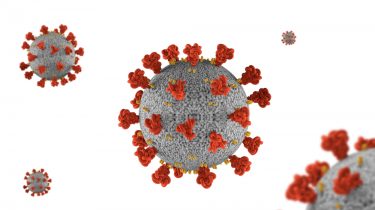Regulatory responses to the COVID-19 coronavirus
Posted: 25 March 2020 | Victoria Rees (European Pharmaceutical Review) | No comments yet
European Pharmaceutical Review brings you the latest updates from regulatory bodies across the globe in response to the COVID-19 coronavirus.


COVID-19 and the UK
Health and Social Care Secretary Matt Hancock has set out emergency measures to give ministers powers to take the action to respond “effectively” to the progression of the COVID-19 coronavirus outbreak. The bill was introduced to Parliament last week.
According to the government, the measures in the coronavirus bill are temporary and reflect the level of threat posed by the virus.
The actions are intended to defend public health and ensure that National Health System (NHS) and social care staff have the required support to deal with significant extra pressure on the UK’s infrastructure.
Falling into five categories, the measures include:
- containing and slowing the virus
- easing legislative and regulatory requirements
- enhancing capacity and the flexible deployment of staff across essential services
- managing the deceased in a dignified way
- supporting and protecting the public to do the right thing and follow public health advice.
The powers enabled by the bill will allow recently retired NHS staff and social workers to return to work without any negative repercussions to their pensions.


Paperwork and administrative requirements will be reduced to help doctors discharge patients more quickly when clinically appropriate, to free up hospital space for those who are very ill and enable clinicians to focus on delivering care.
The bill allows the four UK governments to switch on these new powers when they are needed and to switch them off once they are no longer necessary.
The government highlights that the bill builds on the Treasury’s recent investment of £12 billion to support public services, people and businesses through the disruption caused by COVID-19 in the 2020 Budget.
Hancock said: “We are doing everything we can to protect lives and support the NHS, guided by the best scientists and clinicians in the world. The new measures we will be introducing in the Emergency Coronavirus Bill will only be used when it is absolutely necessary and must be timed to maximise their effectiveness, but crucially they give the government the powers it needs to protect lives. By planning for the worst and working for the best we will get through this, but this is a national effort and we must all work together ‒ from businesses prioritising the welfare of their employees, to people thoroughly washing their hands.”
US response to the coronavirus
In the US, President Donald Trump made a statement to press, after a meeting with the White House Coronavirus Task Force. He said that due to the “unprecedented” efforts and collaboration from the Food and Drug Administration (FDA), National Institutes of Health (NIH) and private companies, the first human clinical trial of a coronavirus vaccine has begun.
Trump also announced that the US would be taking further steps to expand testing capacity. He explained that a self-swab for testing individuals for COVID-19 is now in development, which would make diagnosis much easier.
In regard to the FDA, Trump commented that he would “cut through red tape” to reduce regulatory barriers.


The regulatory body also announced an update to its policy on diagnostic testing for COVID-19.
It is putting a policy in place for states to take responsibility for tests developed and used by laboratories. States can set up a system in which they take responsibility for authorising these tests – the laboratories will not engage with the FDA. Instead, labs will engage directly with the appropriate state authorities.
The FDA is also expanding their previous guidance – under the update, the agency does not intend to object to commercial manufacturers distributing and labs using new commercially developed tests prior to the FDA granting an Emergency Use Authorisation (EUA), under certain circumstances.
The European Commission (EC) COVID-19 panel
All governments have to take well-informed and appropriate decisions”
Meanwhile in Europe, the EC has launched an advisory panel to discuss the impact of COVID-19 and consider management measures composed of seven members from six member states.
The group of epidemiologists and virologists will formulate EU guidelines on science-based and co-ordinated risk management measures.
EC President Ursula von der Leyen, who will chair the panel, said: “The coronavirus is rapidly changing our lives and societies. All governments have to take well-informed and appropriate decisions for the people of Europe every day. That is why scientific expertise and good advice is now more valuable than ever. I am very grateful to all the high-profile experts on the panel for putting their knowledge at the service of the community.”
The panel will provide advice to the EC on:
- Formulation of response measures to be addressed to all member states in line with the different stages of the virus in the EU as a whole, taking into account particular contexts
- Identification and mitigation of significant gaps, inconsistencies or inadequacies in measures taken or to be taken to contain and manage the spread of COVID-19, including in clinical management and treatment to overcome its impact
- Prioritisation of healthcare, civil protection and other resources as well as support measures to be organised or co-ordinated at EU level
- Recommendation of policy measures for addressing and mitigating long-term consequences of COVID-19.
Related topics
Industry Insight, Legal, Manufacturing, QA/QC, Regulation & Legislation
Related organisations
European Commission (EC), National Health System (NHS), US Food and Drug Administration (FDA), US National Institutes of Health (NIH), White House Coronavirus Task Force









